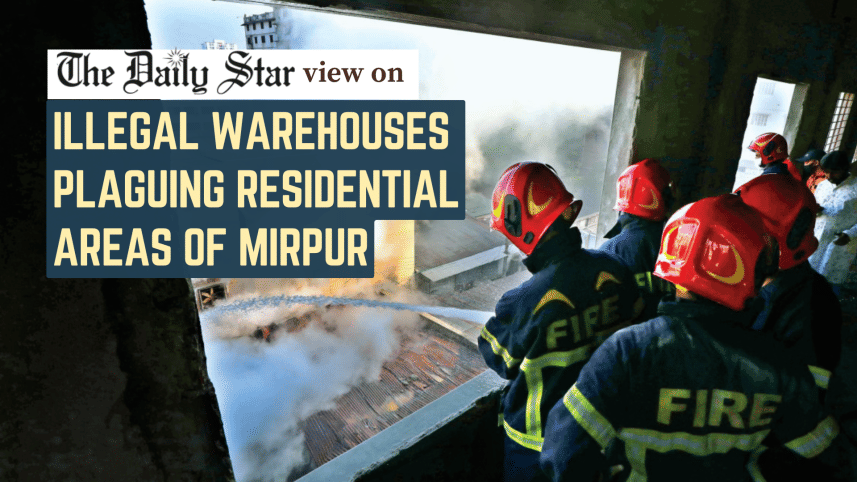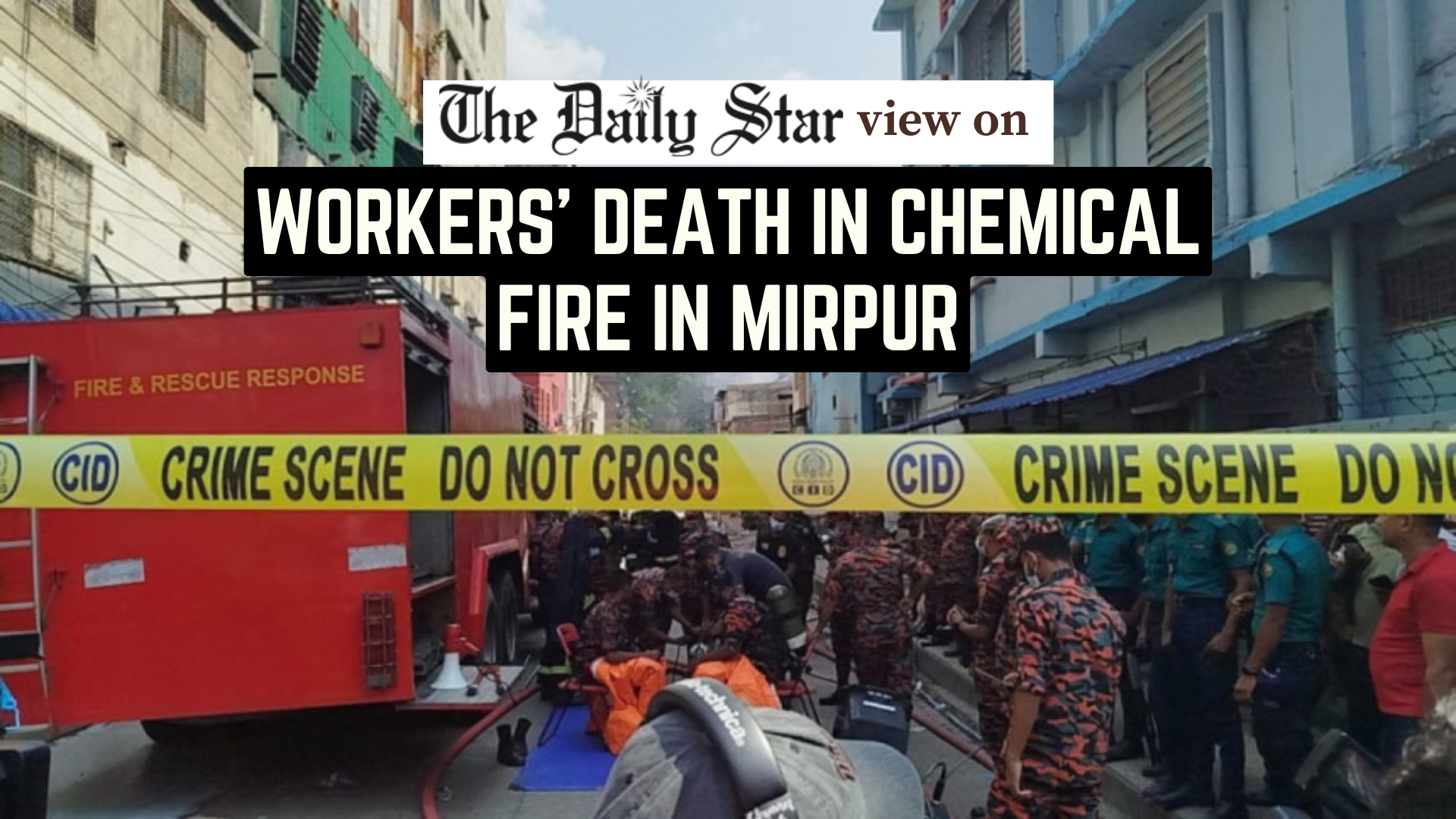Mirpur at risk as illegal chemical businesses mushroom

Last Tuesday's devastating fire in a chemical warehouse in Mirpur's Rupnagar area, which claimed the lives of at least 16 workers—including children—has once again exposed the grave risks faced daily by factory workers and residents across many parts of Dhaka. Reportedly, in densely populated areas like Mirpur, numerous chemical warehouses and small factories have been operating for years right under the authorities' watch, in defiance of laws and basic safety standards. Despite repeated tragedies, the authorities have done little to identify and relocate these hazardous businesses. According to a fire service official, they only learn about such warehouses when a fire breaks out. This speaks volumes about the lack of oversight and accountability on the part of the authorities.
Unfortunately, despite the Fire Prevention and Control Act, 2003, and the Environment Conservation Rules, 1997, which prohibit the storage of hazardous materials in residential zones, such activities continue openly. Reportedly, more than a hundred buildings in the Rupnagar residential area house chemical warehouses, along with small- and medium-sized garment factories and dyeing units. Landowners in this residential zone have been selling plots and buildings to industrial entrepreneurs, who then use them for garment production and chemical storage, according to locals. During a recent visit to Rupnagar's Shialbari area, where the latest tragedy occurred, our reporters found that residential buildings stand barely 14 metres from the site of the deadly fire.
East Senpara is another neighbourhood that has become one of the city's most concentrated chemical trading hubs. Locally known as the "chemical colony," almost every ground floor in the area houses chemical shops or warehouses, while people live upstairs, risking their lives. Many traders conduct these hazardous businesses with nothing more than a trade licence. Such illegal practices cannot be allowed to continue.
Reportedly, after the tragic fire in Nimtoli, Old Dhaka, which killed over a hundred people, many hazardous businesses were relocated to the Mirpur area, while the government projects initiated at that time to relocate hazardous industries from Old Dhaka still remain incomplete or unimplemented even today. This is unacceptable. Moreover, after every such disaster, we see the authorities announcing relocation plans, only for illegal operations to resume once public outrage fades. We hope this time things will be different.
We urge the authorities to identify and shut down all chemical warehouses and hazardous factories operating within the capital's residential areas, including Mirpur. This must be done through coordinated efforts involving the fire service, the Department of Inspection for Factories and Establishments, the Department of Explosives, and city corporations. Clear and enforceable boundaries between residential and industrial zones are also essential to prevent any future tragedies.



 For all latest news, follow The Daily Star's Google News channel.
For all latest news, follow The Daily Star's Google News channel. 
Comments